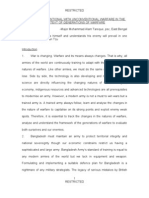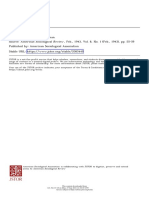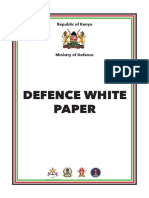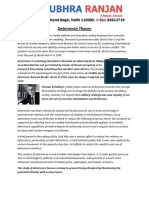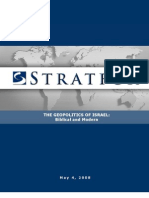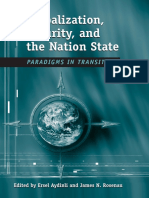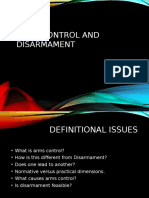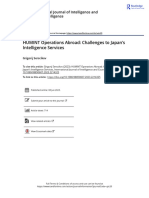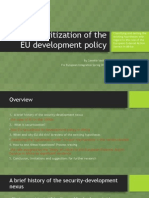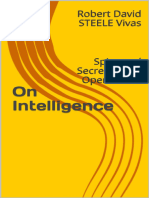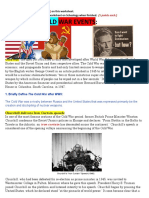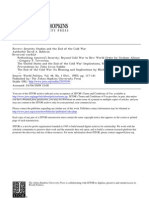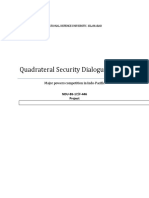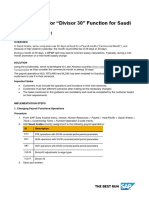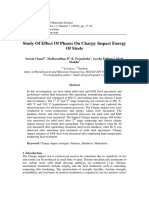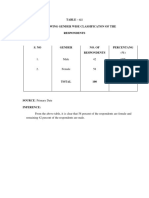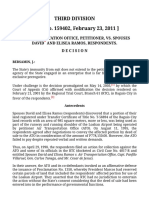0% found this document useful (0 votes)
4K views4 pagesIntelligence - From Secrets To Policy
The article reviews Mark Lowenthal's book 'Intelligence: From Secrets to Policy,' which serves as an introductory text on intelligence for students and professionals. It covers the intelligence process, the structure of the U.S. intelligence community, and the ethical implications of intelligence practices. The review highlights the book's thorough examination of intelligence concepts and its relevance to both newcomers and seasoned experts in national security.
Uploaded by
Yash PandeyCopyright
© © All Rights Reserved
We take content rights seriously. If you suspect this is your content, claim it here.
Available Formats
Download as PDF, TXT or read online on Scribd
0% found this document useful (0 votes)
4K views4 pagesIntelligence - From Secrets To Policy
The article reviews Mark Lowenthal's book 'Intelligence: From Secrets to Policy,' which serves as an introductory text on intelligence for students and professionals. It covers the intelligence process, the structure of the U.S. intelligence community, and the ethical implications of intelligence practices. The review highlights the book's thorough examination of intelligence concepts and its relevance to both newcomers and seasoned experts in national security.
Uploaded by
Yash PandeyCopyright
© © All Rights Reserved
We take content rights seriously. If you suspect this is your content, claim it here.
Available Formats
Download as PDF, TXT or read online on Scribd
/ 4


